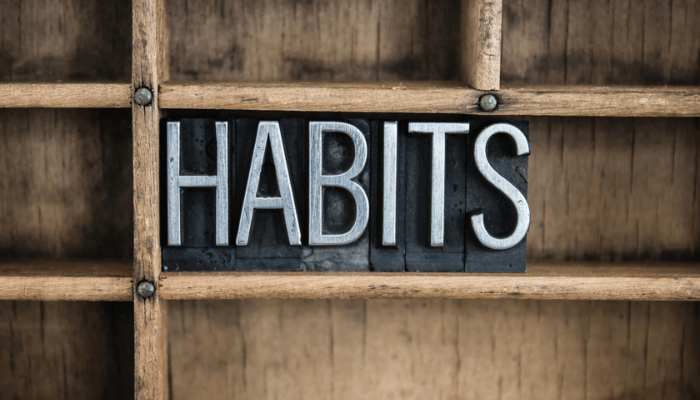In Alaba Market, a young man negotiating for a Bluetooth speaker will insist that the seller connect it to his phone. He wants to hear the bass, check the volume, and watch the battery charge light come on. Until that moment, his money stays in his pocket.
This everyday ritual of asking for a test or a sample is part of what I call The Trial Habit. It is the Nigerian tendency to reduce uncertainty by experiencing before committing. Whether it is a taste of new seasoning, a trial subscription, or testing a generator’s hum, Nigerians prefer proof.
The Trial Habit is a cultural system shaped by risk, mistrust, and improvisation. In Nigeria, products are frequently counterfeited, promises often fail, and services may disappoint, trial is a consumer shield. By sampling first, buyers transfer some of the risk back to the sellers.
Read also: Seven financial habits to build before 2025 ends
Sampling as a Risk Buffer
The Trial Habit thrives because Nigerian consumers operate in a market where uncertainty is high. A blender might burn out in two weeks. A fabric might fade after its first wash. A detergent might not foam. In this context, small trials are risk buffers.
Evidence supports this. Studies show that free trial significantly influenced buying behaviour, not just during purchase but after consumption as well (Orji, Ahungwa & Oyenuga, 2020). Consumers who tried the product were more likely to stay with it because the trial lowered perceived risk and built trust.
In psychology, this connects to the concept of commitment escalation. Once someone has sampled and found satisfaction, they feel an inner push to continue. The small initial act reduces friction for a larger decision.
Sensory Proof in Nigerian Markets
In our open markets, labels and packaging carry little weight compared to sensory proof. Shoppers squeeze tomatoes, sniff fabric, or taste palm oil before buying. The consumers are collecting critical information about the product. Because official standards can be inconsistent, sensory testing becomes a substitute for product quality certification.
Even in electronics, buyers rely on real-time sensory checks. Phones are pressed, laptops are powered on, and sound systems are tested at full blast. Sellers who resist these tests are viewed with suspicion. Trial is not an optional step; it’s a cultural expectation before purchase.
Alternatively, when a trial is overlooked, then two factors must be present: extremely low cost and consent. ‘Low cost’ means that the product is so cheap compared to its street value that customers are willing to take the risk, while ‘consent’ means that customers agreed to ‘no trial’ in acknowledgement of the risk.
Trials in the Digital Age
The Trial Habit has evolved into digital commerce as well. E-commerce platforms like Jumia know Nigerians distrust online photos, so they offer “pay on delivery” or return windows. These mimic trial by allowing consumers to physically inspect before final payment.
Studies have found that marketing communications highlighting trial features such as free samples, money-back guarantees, or “try before you pay” significantly boosted trial purchases (Nile University Repository, 2021). For digital players, trial is a survival strategy.
Freemium models work here for the same reason. Nigerians are more willing to pay after they have tasted value. This explains why free tiers in streaming, fintech apps, or loan apps gain traction before conversion. Trial lowers the psychological cost of first adoption.
Social Value of Testing
Trial is also a social signal. Nigerians often share that they “tested it first” when a product turns out well. This provides social credit: it shows they are careful, discerning, and wise. The Trial Habit therefore, carries both personal and communal value.
Even negative trials play a role. When a new restaurant gives out free samples, consumers may share feedback even if the taste disappoints. The act of having tried becomes part of the story. Even in social circles, the phrase “I tried it” carries more weight than “I heard about it.”
Read also: Top 10 habits that keep people poor, and why the rich avoid them
Implications for Businesses
For businesses operating in Nigeria, the Trial Habit should inform both product design and sales strategy.
Design smaller SKUs: Trial-friendly packs lower entry barriers. Sachetisation in Nigeria is not only about affordability. It is about allowing consumers to test before committing to bigger purchases.
Demonstrations matter: Street vendors who fry and display, electronics shops that run sound tests, beauty companies offering testers are all trying to build trust. Trial moments are trust-building rituals.
Offer risk-reduction guarantees: Money-back options, trial windows, or easy exchange policies play directly into the Trial Habit. They reduce perceived risk and encourage first purchase.
Leverage early adopters: Nigerians place strong weight on peer experience. Brands should empower early testers to share their trial outcomes through word-of-mouth or social media.
Match trial to delivery: A poor trial backfires. If the sample overpromises compared to the main product, consumers will punish the brand with amplified mistrust. Trial must accurately reflect what follows.
Conclusion
The Trial Habit is a rational, culturally reinforced way of navigating uncertainty. Nigerians are not afraid of spending money. They are afraid of regret. Trials, samples, and tests reduce the probability of regret before it happens.
For businesses, give consumers the chance to experience value before they commit. In Nigeria, every sample is an entry ticket to credibility. And credibility, once earned through trial, often becomes loyalty that competitors cannot easily shake.









